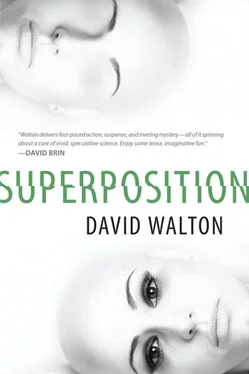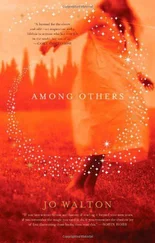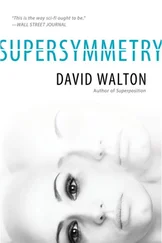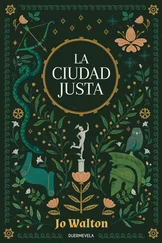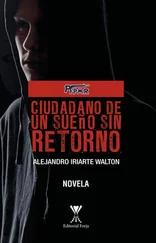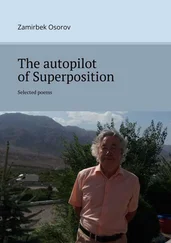“But he was found in a fingerprint-locked room. Only you or Brian could have locked it,” Jean said.
“Or else someone who knew how to reprogram the lock.”
“The police looked for that. They said it hadn’t been reprogrammed in years,” Jean said.
“Okay, then someone who both knew how to reprogram the lock and hack its internal logs so nobody could tell.”
“Doesn’t sound like the type of woman Brian usually slept around with,” Jean said.
“Look, someone killed him. It wasn’t me. The varcolac isn’t likely to use a gun. That leaves other people. So someone must have gotten past that lock,” I said.
Jean made an exasperated noise. “We’ve had this conversation a dozen times. Logically, the only person who could have locked the door and left the room was Brian himself. The other version of himself.”
I sagged against my seat. I still didn’t think Brian had killed himself, but she was right, we weren’t getting anywhere. Besides, my goal wasn’t to solve Brian’s murder anymore. It was too late for that. Now I just wanted to find my family.
“We need to go back to the NJSC,” Jean said.
“We’ve been there three times this week,” Alex said. “What else are we going to find?”
Jean leaned forward. “We have to find whatever it is the varcolac wants. In order to know where it took your family, we have to know where it is. We have to find the varcolac. The only way to do that is to go back down to the CATHIE bunker.”
I started to shake my head. “That’s not a good idea. You haven’t seen it, Jeannie, not in real life. It nearly killed us.”
Jean crossed her arms. “If you want to find them, that’s where we have to go. That’s where the answers are.”
A sudden rap on the car window made me jump. I looked out to see a journalist peering in at me. “Mr. Kelley? Can I ask you a few questions?”
“Time to go,” I said. I turned the car on and pulled it into gear.
The journalist rapped on the window again. “Mr. Kelley?”
I rolled the window down an inch. “I’m innocent,” I said. “I have nothing more to say.” I backed the car out of the parking lot. He followed me and stood in front of the car, blocking my exit. I drove toward him anyway.
“Wait,” he said, but he didn’t have the courage to stand his ground with me bearing down on him. I didn’t stop, and he jumped aside at the last minute. “Hey!”
As soon as we reached the street, another journalist spotted me and ran in our direction, camera drones whizzing ahead of her. “Court must have let out,” I said. “We should have gotten farther away.” More of them appeared, like seagulls after bread, materializing out of nowhere. I blasted the horn and pulled away, leaving them calling after me from the curb.
“Where are we going?” Jean asked.
“Where do you think?” I asked. I didn’t like it, but I had to admit that she was right. There was no way around it. The super collider ring was the varcolac’s lair, if anything was, and if we wanted answers, we had to go back down into it.
DOWN-SPIN
Waiting for a jury to come back with a verdict is the worst sort of torture. The seconds drag by, and there are too many of them in each minute. Sometimes, when I looked at the clock, I could have sworn it went backward. Not that the time really mattered. There was no deadline. The jury was free to take all week to make a decision if it needed it.
Haviland’s final interrogation of me had been bloody and merciless. He dragged me through my story detail by detail, making me repeat it again and again, until it sounded as hollow and ludicrous as a fairy tale. Along the way, he asked me if I believed in gnomes, Bigfoot, or the Loch Ness Monster, or if I’d ever been abducted by aliens, each time shrugging as if, given my tale, these were reasonable points to establish. Terry stared stonily ahead, giving no indication that he noticed the beating we were taking.
When the bloodbath was finally over, the lawyers delivered their closing arguments. Terry made a valiant effort, reminding the jury that the only physical evidence the prosecution had against me showed that I had been at the scene, which I had freely admitted. It didn’t prove that I had pulled the trigger. There were no witnesses that placed me at the scene at the actual time Brian had been killed. The prosecution had provided no motive for me to commit such a crime, beyond their contention that I was a violent man. He didn’t push the science, except to claim that significant evidence had been brought to bear to demonstrate the plausibility of an alternate theory. Roswell frowned a bit at that and seemed about to interrupt, but she let it slide. He ended by reminding the jury that they didn’t need to believe the alternate theory entirely, only be able to see that things could have happened in more than one way, and thus that my guilt had not been proven.
Haviland, on the other hand, was triumphant in his closing argument, almost gloating. He ridiculed my “pseudoscience,” even provoking a laugh from one juror. Then he grew solemn and sermonized on the ills of causing the death of another human being, the need for society to protect its own, and the responsibility of each juror to their fellow citizens. He summarized the evidence in rapid style, and he dismissed the attempts of the defense to spin a plausible alternative story as “fanciful” and “desperate.” He glossed over the idea of motive, and harped instead on the “reasonable doubt” theme of his opening, claiming that any reasonable person would have no doubt who had killed Brian Vanderhall.
When both lawyers had finished, Judge Roswell gave the jury their instructions. She ordered them severely to consider only the evidence, not the lawyer’s questions or statements “or anything else you might have seen.” Only what was officially entered in court record was to be considered.
“One final thing,” Judge Roswell said. “I’m afraid that I’m going to have to call for this jury to be sequestered until a verdict can be reached. If you reach a verdict this evening, you will not be further inconvenienced. If not, however, you will not be able to return to your homes until the case is decided. Meals and lodging will be provided to you.”
The announcement was met with groans and traded looks by the jurors, and I was struck again by how insignificant this case was in the lives of these men and women. Even if they were conscientious people—and I had no reason to doubt it—this would all be over for them in a day or two. They would return home to their families and their lives and, after regaling their friends with tales of their murder trial for a week or so, forget all about it. They probably cared more about whether their court-provided hotel room would have HBO than they did about the ultimate outcome of the case. Perhaps I was being too cynical, but from where I sat, I wasn’t feeling too optimistic about the legal system.
Roswell fixed them with her evil eye, no doubt picking up on the same reactions. “Ladies and gentlemen of the jury, do not allow your desire to go home prevent you from giving this case your full efforts. A man’s life hangs in the balance. Should you keep a dissenting opinion to yourself, and not speak up against the ideas of your fellow jurors, you may be punishing an innocent man, or allowing a guilty one to go free. Our system of justice entrusts you with this responsibility, believing that you will treat the determination of this man’s guilt or innocence with the same gravity as you would if it were your own.”
With that, the jury stood, faces unreadable, and filed out of the room. I sat in the same chair I had warmed for most of this interminable week, waiting. There was a lot of dead time in a trial, so I had already spent a great deal of time waiting in this room—waiting for the jurors to arrive, waiting for the lawyers to finish a sidebar with the judge, waiting for any of a hundred secret rituals the judge performed in hushed voices with her aides, the court recorder, the court officers, the bailiff, and any of the other unidentified people who went in and out, disrupting the flow of the trial. I had studied at length the room’s elegant crown molding, its bland oil paintings, its massive chandeliers. There was nothing left to distract me from a bitter reflection on my situation.
Читать дальше
